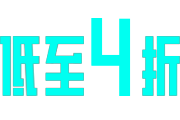
 收藏此图
收藏此图
Tasked to design a temporary structure to present an official merch collaboration between fast-food joint BBT and Looney Tunes, architecture studio Weft opted for off-the-shelf materials.
Key features
To realize the pop-up, Ricardas Blazukas (founder and design director at Weft) chose to ‘drop’ a series of four disused shipping containers on the edge of the cantilevered rooftop of BBT’s permanent new branch Hilltop. The location is in Kuwait City, designed by Kuwait-and Portugal-based architecture company AAP. Modified to fit the fast-food joint’s red branding, the containers were connected to create an open-plan layout. The three 6-m-long containers at the rear end house the merchandise, which is showcased on mesh displays and garment conveyors typically utilized at dry cleaning stores. At the centre of the space customers will find a check-out counter that doubles as a garment customization station. The 3.6-m-long counter is suspended off the ceiling with the use of heavy-duty ratchet straps. Carrying on the concept’s industrial narrative, bright yellow hoses are used to disguise exposed wiring, while red crates offer a stock storage solution. The playful retail experience continues outdoors, where Weft added seating areas for socializing.
The choice for readily available, off-the shelf material and ready-made but disused containers for both structure and decor significantly reduced build time (to under 10 days) and allows for easy reuse. ‘We learnt that we could only win if our design is component-driven, and the details allow all parts to connect and disconnect easily,’ explains Blazukas. ‘Essentially, we like to think about the design elements as lego pieces, on both macro and micro levels. That way, the project can be taken apart without any damage and reassembled elsewhere either as the same design or a different one by building new matching components onto it.’ Besides additional storage space, he believes the most likely future for the BBT merch pop-up is for the space to become an arcade games room that could accommodate private events and kids’ birthday parties. The client is also considering moving the pop-up to their other branch, where it can potentially be given a more permanent location.
Frame’s take
When designing pop-ups, typically made to last for a brief timespan, it’s important to consider the project’s aftermath. A certain form of flexibility and modularity – keeping elements transportable, recompilable and thus reusable – is key here. The component-driven concept of the BBT merch pop-up shows just that. As Blazukas points out, the design allows his team and the client to consider endless programmatic narratives regarding future use, a feature that should be an indispensable, non-debatable element of all temporary architecture.
Designed by Weft

 收藏此图
收藏此图






